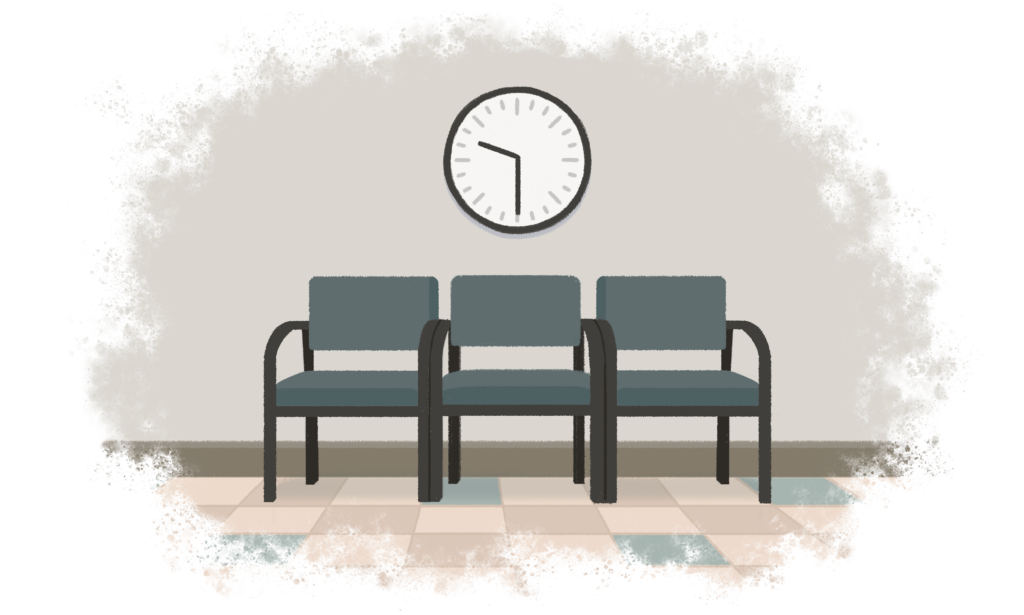How to Show Respect Simply by Communicating
I recently had a doctor’s appointment scheduled for 9:00 a.m. The office asks that patients arrive 20 minutes early – which admittedly feels like a bit much – to ensure paperwork is completed, insurance information is collected, and appointments stay on schedule. As requested, I arrived with ample time ahead of my appointment, completed my check-in process in under five minutes (so 15 minutes to spare before the scheduled time with my doc!), then found a seat in the waiting room.
When 9:30 a.m. rolled around and my name still hadn’t been called, I decided to inquire at the desk to see what was going on. I know doctors can easily become delayed with other patients and I am understanding of those circumstances, but I felt a half hour after my scheduled time was enough to warrant an ask.
It was at this time that I was told an urgent post-op case had come in at 8:30 a.m. and that my doctor was going to be delayed. If a patient has an emergency and arrives to see my doctor before I check-in (or even after!), of course they should be given priority. I asked the receptionist if she had any idea how much longer I should expect to wait, and she estimated “at least another 20-30 minutes.”
This estimate would put me – at best – in the exam room a little under an hour after my scheduled appointment, and more than an hour since the time I was instructed to arrive “to ensure appointments are kept on schedule.” When I made this appointment, I made sure my work calendar was clear until 10:30 a.m., which I thought gave me a more-than-sufficient buffer.
Thankfully, my colleagues were understanding when I asked to reschedule the morning work meetings that I had on my calendar to later in the day, which I did from my chair in the waiting room as soon as I knew I wouldn’t be able to join them as planned. The end result was that I simply had to wait longer than most people would like, but again, it’s not unheard of in a doctor’s office and wasn’t a problem on its own. But I was still frustrated. Not at all because I had to wait while another patient was dealing with an emergency situation, but rather because no one in the office proactively shared an update with me until I asked.
I finally got brought to the exam room at 10:30 a.m. I was in my car by 10:45 a.m.
Let’s look at another example.
A friend of mine was on a cross-Atlantic flight last month. Boarding had been going on for about an hour when an announcement came over the public address system informing passengers that someone on the flight had a severe peanut allergy. The attendant making the announcement asked that all other passengers refrain from opening the package of, or eating, any peanut products for the duration of the flight.
Assuming this allergy is life-threatening, I’d find it hard to believe the person involved would have forgotten to mention it to airline staff as soon as they arrived at the gate.
This is, of course, clearly important information for the airline to share. I’d like to think that no one is looking to cause another person to go into anaphylactic shock just so they can eat a peanut butter cup or some trail mix on an airplane.
But holding off on making the announcement until the plane is nearly full and some passengers have been physically in their seats for an entire hour seems negligent. Surely someone on the plane had already been munching on a snack containing peanuts, therefore unknowingly putting the passenger with the allergy at risk. Why didn’t anyone in charge of the flight make this announcement prior to the start of the boarding process and then continue to reiterate the message as passengers were taking their seats?
Figuring out the areas for improvement in these particular situations seems pretty straightforward. But how can we all be more accountable and deliberate with communication in our day-to-day to show consideration and respect for others both in the workplace and outside of it?
Business meetings:
- If your attendance is critical, try to be flexible with your schedule to allow for a timely meeting.
- If you’re running late, let everyone know as soon as possible.
- Come prepared. If you’re supposed to have information ready to present, do your part so others’ time isn’t wasted.

Written communications:
- Reply to emails in a timely manner. Your response may shape if or how the sender approaches another conversation.
- If your contribution to a project needs to be complete before someone else can move forward with their own section, keep them in the loop on your progress and meet your deadlines.
Personal time:
- If you make plans, try to keep them.
- Don’t make assumptions about the schedules of your family and friends. Be courteous when planning.
Time for a quiz. How should you handle the scenarios below?
You’re stuck in traffic on the way to meet a friend for dinner, or perhaps you left your house 20 minutes later than you should have… (It happens.)
A: Safely send a text with your new ETA as soon as you know you’re delayed. There are only so many times a person can read through everything on a menu to fill the time while they’re waiting for you. Be considerate of their time.
You’ve had an email sitting in your inbox for a few days that you know you should respond to, but haven’t yet for some reason…
A: Reply! Certainly, there are any number of reasons you may be holding off on a response. But if something along the lines of “simply not mustering up the energy” is your reasoning, it’s time to get back to the sender. Your response may shape if or how they approach a conversation with someone else.
You’re working on a project with a group and your portion isn’t near being done yet, but you’ve told everyone on the team that you’re close…
A: Be honest. The rest of the group may need the information in your reply to move forward on their part of the project. Or they may wind up needing to push unrelated obligations and inconvenience others to accommodate for the time that you’re wasting by being deceptive.
Remember, the age-old sayings:
Communication is key… and it’s still a good idea to treat others how you’d like to be treated yourself. And when someone uses good communication to show they’re considerate of your time, always show your appreciation.








